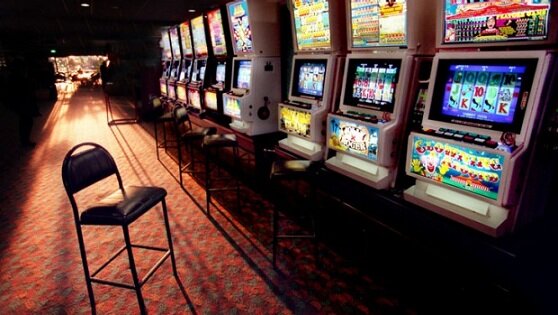Early on Saturday morning, around 1am, an email arrived in my inbox. It had come through the contact form on my blog, and it was from a young man, Joe*, in another city.
It was a cry for help. At the tender age of 20, Joe was addicted to poker machines.

Many think that poker machines are the domain of pensioners, or migrants, or the poor, and there’s no doubt that these demographics are explicitly targeted by the industry. But research has shown that 18 to 24 year olds have the highest rate of problem gambling of any age group, and lose more on poker machines than anyone else (source: Delfabbro, 2008).
It doesn’t stop there. Many adult problem gamblers report having developed gambling problems in their teenage years. Poker machine addiction is the gift that keeps on giving.
When we turn 18, worlds open up to us. We’re adults at last, we can partake in adult things… like drinking, and gambling.
Drinking is and can be problematic but it’s essentially a social activity. We drink with our mates, we rely on them to pull us into line. If we get drunk, we will be refused service. If we misbehave, we will be kicked out. And drinking alone is frowned upon.
But gambling, especially on poker machines, is a solitary exercise. We may go to a venue with a group but we gamble alone. There’s no one to stop us, no one to cut us off, no one to kick us out when we’ve had enough.
And many young adults are seeking that solitude, that disconnection from the world. One in four young adult Australians currently has a mental health condition; and three in four adult mental health conditions emerge by the age of 24 years (source: Beyond Blue).
This is not a coincidence. Poker machines are isolating our most vulnerable age group and setting them up for a lifetime of struggle.
The machines are designed to exploit any flaws or weaknesses in our psychological makeup. Many young adults aren’t prepared to deal with this and the consequences are dire, and lifelong.
Poker machines are addictive. They are a public health issue, and are being recognised as such. But they are a mental health issue as well, and we can’t ignore this any longer. We are betraying our youth.
There is a case to be made for raising the legal age for poker machine gambling from 18 to 21. As a harm prevention measure it’s hard to argue against, as it would do nothing but help our most vulnerable age group, giving them time to grow and develop as adults before exposing them to the psychological assault that poker machines represent. And it would cost nothing to implement.
But with 18 to 24 year olds spending more on poker machines than any other age group, don’t expect the industry or our governments to greet this idea with open arms.
I’m one of these statistics. I was 24 when I first gambled on a poker machine; I was addicted before my 25th birthday.
Joe is another. Reading his email, seeing his pain, broke my heart; my eldest daughter is his age.
This can’t be allowed to go on.
* not his real name



Brakes my heart to Tom…I was hooked when I was 17… I think you are spot on when you say that the age should be raised.
The young age is surprising and concerning. I would be interested in reactivating Know the Odds Inc. if there was support. I would approach it rather differently now.